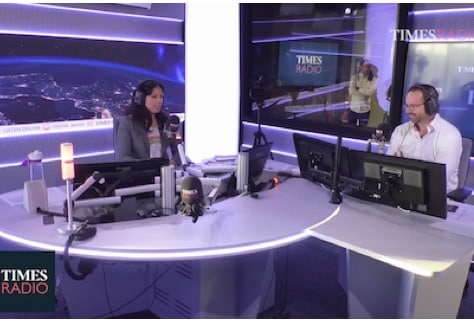LONDON — Radio TechCon, the United Kingdom’s radio and audio industry technical and engineering conference, moved online this year to bring together a mixture of speakers from across the audio and technical world, with masterclasses and case studies from real-life projects.
Organizers were keen to retain the atmosphere of previous years in the new format. “Building community is such a key part of Radio TechCon,” said Ann Charles of event producers TBC Media. “We designed the day to include our usual talks, as well as opportunities for delegates to chat to each other in virtual breakout rooms and meet sponsors who are showcasing their latest products. We’ve made the day as interactive as possible – you still very much feel part of a real event,” she added.
Real-Time Communication
Conference speakers included comedian Robin Ince and BBC outside broadcast manager Matthew Page discussing how the broadcaster developed new software systems to enable remote audience recording for its shows during the pandemic. Page said: “We needed a way to record interviews, discussions and other content without presenters, producers and engineers being in the same location — everyone was at home.”
The BBC used WebRTC [Real-Time Communication] as a way of establishing low-latency secure peer-to-peer connections between web browsers. “Having learned a great deal about it very quickly, we could see the potential it could afford us,” explained Page. “We suddenly had the ability to put a broadcast quality codec in hundreds of people’s homes — almost infinite possibilities were made available to us.”
The system is now regularly used to provide virtual live studio audiences for BBC shows, which has been welcomed by the presenters. “By having an audience that we can hear, it really does help the momentum of the show,” said Ince, who hosts Radio 4’s “The Infinite Monkey Cage” with Professor Brian Cox. “There’s a feeling that the audience is even more connected in the whole experience — that everyone is looking directly at you and you’re looking at them.”
Unique Challenges
Another challenge during the pandemic was the launch in June of Times Radio, which brings together the journalism of The Times newspaper with Wireless, the company behind talkSPORT, talkRADIO and Virgin Radio. Chris Thame, lead engineer on the project, talked through the various studio moves required, and the unique challenges posed by virus restrictions.
“Everything we did was made a little bit harder by having to keep a limit on the number of people in the studio and control room,” he said. “Another hurdle was working round the Perspex screens required in the control room, which impeded workflows for the tech ops and producers.” Thame advised: “Plan, plan, plan — and be flexible and understanding.”
New research into the energy footprint of radio services was presented by Chloe Fletcher, sustainability data scientist at BBC Research & Development. This found that total energy use across all platforms for BBC radio services was 325 GWh, equivalent to 0.1% of U.K. electricity use. Consumer devices had the biggest impact, taking about three-quarters of the total energy. “This might be quite a surprising result as transmitter networks are often assumed to be the most energy intensive part of the chain,” said Fletcher. “But even though the power of the consumer devices are really small on an individual level, when we scale them up by the tens of millions, you can see how this will really add up. We see that the standby power of radio sets and smart speakers are driving this energy use the most.”
Radio TechCon’s online platform also allowed delegates to visit virtual rooms to meet the event’s sponsors and learn about the latest technology innovations. Event sponsors included Broadcast Bionics, Arqiva, the IET, Broadcast Radio, RCS, RØDE Microphones, Technica del Arte, Vortex Communications Ltd. and Lawo.

